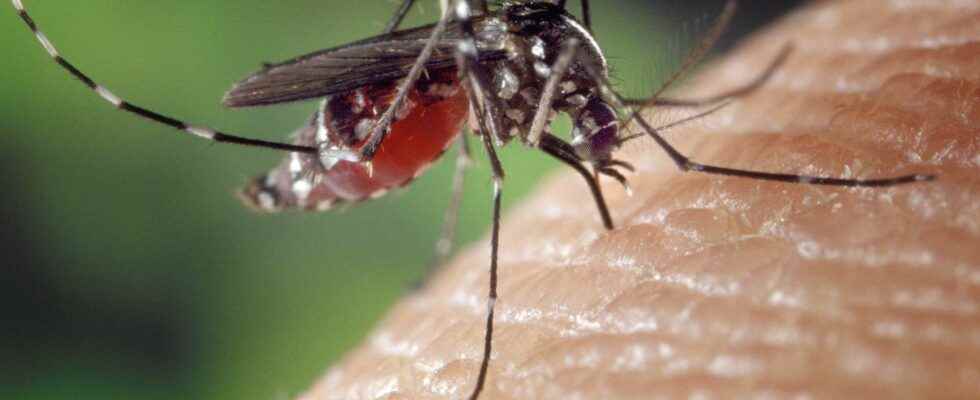After much controversy, a study on the release into the wild of mosquitoes Aedes aegypti genetically modified has just been carried out in the archipelago of the Keys, in Florida. The first results have been announced and seem encouraging, but many points remain to be elucidated in order to measure the impact of this measure on the transmission of diseases by this vector.
The mosquitoes feed on the nectar of flowers and plants but the female needs the proteins contained in the blood to allow the maturation of her eggs. It is therefore the only one to have mouthparts allowing it to suck the blood of a host.
From species pricking the man, Aedes aegypti is a mosquito living in temperate, tropical and subtropical zones. It is also a vector of various virus diseases such as dengue feverthe Zikathe chikungunya and the yellow fever. Biting during the day and adapting very well to urban conditions, it represents a threat to public health, especially since some arbovirusessuch as dengue fever, have seen their incidence rate increase by more than eight times over the past two decades (WHO). Faced with the relative failure of traditional vector control methods, new measures based on the genetic engineering are under development.
Transgenic mosquitoes to reduce the vector population
Thus, Oxitec Ltd, a company based in the United Kingdom and specialized in the development of biological solutions against insects vectors of diseases has just carried out an experiment based on the release in full air of mosquitoes Aedes aegypti genetically modified.
Since 2013, Oxitec Ltd has been developing these strains of mosquitoes carrying a embarrassed modified, called “self-limiting”, which prevents the female from surviving. Thus, males released into the field can mate with wild females and produce male-only offspring that can in turn pass on the limiting gene. The principle is to reduce the mosquito population.
Since April 2021, researchers from this company have placed modified mosquito eggs in properties of thearchipelago of the Keys, Florida. Traps to collect eggs and adults have been scattered around. On a collection of 22,000 eggs, the results show that the movement zones are identical in the modified mosquitoes versus wild mosquitoes and breeding females could not survive. Moreover, the modified gene can remain for two to three months in the wild population.
A debated initiative
Although this technology presents an alternative in vector control, it is nevertheless controversial. It has not been demonstrated today that this study can have a real impact on public health. Additional trials on the transmission of arboviruses would be necessary, there is no evidence that the reduction of the mosquito population has an impact on the transmission of diseases.
After 10 years of struggle for public acceptance and although endorsed by the FKMCD (Florida Keys mosquito control district) and by the EPA (Environmental Protection Agency), the initiative is widely discussed, especially since according to a identical study carried out in Brazil, the impact of crossbreeding the strains transgenic and wild on disease transmission and on other actions implemented in vector control remains unknown.
Interested in what you just read?
